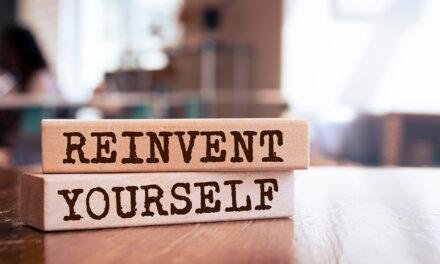5 steps For Achieving More in 2024: A Guide to Success without New Year’s Resolutions
As we are about to enter a new year, many of us set resolutions, hoping to achieve more. However, more often than not, these resolutions fade away within a few weeks or months. Instead of relying on New Year’s resolutions, why not adopt a different approach to make 2024 not just the best year yet, but the year you achieve more? Here are five key steps to jumpstart your efforts.
1. Define Your Goals
Start by clearly defining what you want to achieve in the coming new year. Whether it’s personal, professional, or health-related, having a clear vision of what you want to achieve is crucial. Write them down and break them into smaller, actionable steps.
How to Define Your Goals To Achieve More
As the new year approaches, many of us reflect on the past year or years, as well as looking ahead to the coming year. Setting goals for the new year can be a great way to focus your energy and work towards personal growth and achievement. However, there are some steps that are necessary to help along the way. Start with these tried-and-true steps first, before delving into the specifics of achieving what you want.
1. Reflect on the past year
Take the time to think about past accomplishments and what areas in your life you would like to improve. Consider your successes and challenges, and use them as a starting point for setting new goals.
2. Identify your values and priorities
Think about what is most important in your life. What are your core values? What do you want to prioritize in the coming year? Identifying your values and priorities will help with setting goals that are aligned with what truly matters to you.
3. Set SMART goals
SMART is an acronym for Specific, Measurable, Achievable, Relevant, and Time-bound. Goals, big or small, should be clear, quantifiable, realistic, and relevant to your core values. Further, they should have a specific deadline. This is how to stay focused on each actionable step (see below). This will ensure measurable progress.
4. Break it down
Break your goals into smaller, actionable steps. This will make them more manageable and increase your chances of success. Each step should be specific and have a clear timeline.
5. Stay motivated and accountable
Stay motivated throughout the year. Share your goals with a friend or family member who can hold you accountable. Celebrate your progress along the way to keep yourself motivated and engaged.
Remember, defining your goals is a personal process, because everyone’s objectives will be different. Take the time to reflect on what you truly want to achieve, not just in the new year, but throughout your life. Also, set goals that will inspire and challenge you. With a clear vision and a plan to achieve that vision, you can achieve the things you want, regardless of a looming new year. Your future matters 365 days, not just a day before another new year. Work towards a brighter future every day.
2. Create a Plan
The next key step to consider is a plan. Once you’ve defined your goals, create a plan to achieve them makes sense. So how do you begin? Start with outlining the specific actions you need to take, along with a set deadline for each step. By having a well-structured plan, you are more likely to achieve more, to be successful. Here are 4 things to keep in mind when creating your plan.
1. It should be flexible
Remember that plans can and will change. Be open to adjusting your them when needed. Life is unpredictable, and being flexible will help to adapt and stay motivated.
2. It should be accrue-able
What is accrue-able? Accrue itself is accumulating something. A good goal or aim is never something that’s achievable overnight. Most of the time, the goal or objective may even seem hard. Why not make a plan to get there one step at a time? Most of us have heard the term small steps. It applies so much more when you have a plan that needs time and patience to achieve.
3. You Need A Process To Track Your Progress
Regularly review and track your progress towards your aim. This will contribute to staying motivated and to make adjustments along the way. Celebrate your achievements and learn from any setbacks.
4 How will you acknowledge each milestone?
If you are truly serious about achieving your objectives, there is a lot of hard work ahead. If your plan is what we term accrue-able and you are making the progress you want, one step at a time, then you need to acknowledge and celebrate each of the milestones you achieved.
As you create your action plan, also include how you will celebrate each achievement.
A goal without a plan is just a plan is just a wish. Words said by Antoine de Saint-Exupéry. Creating a well-thought-out plan will ensure your goals are not fleeting. That you are better equipped to achieve more. Stay committed, stay focused, and enjoy the journey towards the growth you want.
Related: Types Of Goals We Set
3. Embracing Continuous Learning
Continuous learning is a mindset that allows individuals to adapt, grow, and thrive in an ever-changing world. In today’s fast-paced and competitive environment, the ability to embrace continuous learning is more important than ever. Whether you are a student, a professional, or simply someone who wants to expand your knowledge and skills, here are some tips to help you on your journey of lifelong learning.
1. Cultivate Curiosity
Curiosity is the fuel that drives continuous learning. Stay curious about the world around you, ask questions, and seek answers. Embrace new ideas, perspectives, and challenges. By nurturing your curiosity, you open yourself up to new opportunities for growth and discovery.
2. Set Learning Goals
Define clear and achievable learning goals. Whether it’s mastering a new skill, gaining knowledge in a specific field, or broadening your horizons, setting goals helps you stay focused and motivated. Break down your goals into smaller milestones and celebrate your progress along the way.
3. Embrace Failure and Learn from Mistakes
Failure is an inevitable part of the learning process. Embrace it as an opportunity to grow and learn. Analyze your mistakes, understand what went wrong, and take corrective actions. Embracing failure as a learning experience will help you develop resilience and adaptability.
4. Seek Diverse Learning Opportunities
Expand your learning horizons by seeking diverse opportunities. Attend workshops, conferences, and seminars. Engage in online courses, webinars, or podcasts. Join professional networks and communities to connect with like-minded individuals and learn from their experiences.
5. Practice Reflection
Reflect on your learning journey regularly. Review what you have learned, how it has impacted your personal and professional growth, and how you can apply your knowledge and skills in real-life situations. Reflection enhances understanding and helps solidify your learning.
Embracing continuous learning is a lifelong commitment. By cultivating curiosity, setting goals, embracing failure, seeking diverse opportunities, and practicing reflection, you can unlock your full potential and embark on a journey of personal and professional growth.
4. Strengthen Your Inner-Thoughts
Consternation is one of the main reasons many of us don’t achieve the things we want. This usually happens weeks or months after we tell ourselves we want to accomplish a goal or simply wanting to take steps towards improving our lives. Maybe we realize that goal won’t be easy, or we see potential roadblocks and doubt our ability to overcome them.
There isn’t a simple way to overcome dismay. But we can work to strengthen our resolve and it starts with our mindset. Believe it or not, our mindset is a muscle that we build to help us get through the difficulties of life.
So, how do we strengthen our inner thoughts or our mindset? Here are five steps you can take to build this muscle. Without it, you may not have the tenacity to achieve more.
1. Be Mindful
Whether it’s paying attention to our thought or being aware of our strengths and weaknesses. When we know what our strengths are, we want to use them to the best of our abilities. However, many of us either don’t pay attention to our weaknesses, or we use it as an excuse to not take that next step. We don’t realize that just because we are not strong in all areas of our lives; it doesn’t mean we are potentially failing. Being mindful isn’t just about seeing the obstacles, it’s about compensating for them. We need to realize that in order to achieve more, we must be cognizant of those roadblocks and find ways around them.
2. Associate with like-minded people
As I mentioned previously, mindset is a muscle. It’s a part of our core that needs to be strengthened, and one way to do that is to pay attention to the people we associate with.
We all need to have some sense of support in our lives. That one person or persons who will be there to cheer us on, to help us stay accountable to our objectives.
The other extreme, we can also have people in our lives who doubt us and will tell us what we can and can’t achieve. We should avoid the naysayers and focus on those who will support and encourage us to achieve our goals.
3. Become more open-minded
Another way to expand our capacity to achieve the things we want in life is strengthening our ability to be diverse. There is never just one way, things are not either black or white. For many of us, when we understand what that last sentence means, our lives and efforts become just a little easier.
When we want to try something new, or to follow a different approach, we find inspiration and, possibly, motivation.
Will there be discomfort with this approach? Absolutely, but the results are worth it. Consider that our ability to be open-minded can lead to traits such as resiliency, optimism and growth, would certainly be a reason to be amenable to a different approach.
5. Practice Patience
Anything worth achieving doesn’t happen overnight. One key aspect of having the right mindset is the ability to be patient. Without a doubt, it is a skill we should all possess because the sooner we realize that success is a journey that requires perseverance and fortitude, the more likely we are to develop the inner-strength we need.
There are so many benefits to patience many of us don’t consider. When we are patient, we allow ourselves to think more clearly and strategically. It helps to reduce the stress in our lives and increase our ability to be in control of our lives.
Patience helps us to see our achievement from a long-term perspective and not a short-term one. This contributes to lessening the urge we all have for immediate gratification.
Further, it helps us to be continuous in our efforts to pursue our goals and stay on track to achieving our aim.
Define Your Why
Last but certainly not least, we should all take the time to write about the reasons we will do what it takes to accomplish the things we want.
There can be many reasons to know why we want to attain something, but consider that by taking the step to acknowledge our reasons (and not just in our head) we can see our purpose with clarity.
If we want to do our best, overcome our fears, and make better decision, then recognizing our why in ways other than just thinking it is a first step that is a prerequisite for personal achievement.
Find a Mentor
Let’s define what a mentor is: This is a person we can trust. Someone whom to emulate, that will advise and support our efforts to achieve the things we want in life.
So many of us go through life trying hard to accomplish our goals, some with success, others without. The ones who can’t seem to make it happen usually just give up and move on to another goal that may have the same result.
What most of us don’t realize is that there isn’t anything wrong with what we want to accomplish. We may just need a different approach, a different perspective, someone to tell us we can.
Relating back to what you’ve just read, imagine having someone who can help with our goals and plans to achieve those goals. Also consider that such a person can help strengthen our mindset and shift our inner-dialogue. All of this is the purpose of a mentor.
6. Bonus – Give Back
As we celebrate our success, consider giving back to others who may be in need. Donate to a charity, volunteer time, or mentor someone who can benefit from your experience. When we share our success with others, we not only help them but also bring a sense of fulfillment and gratitude into our lives.
Related:: Make the World Better With These 17 Free Ways to Give Back
Summary
We should never wait until the dawning of a new year to set goals or to tell ourselves we want more from our lives. To become a victim of this annual tradition is to make short-lived promises to ourselves that we will certainly forget or abandon in the weeks and months into the new year.
Instead of this fleeting approach, let’s put our plan into action well before the new year and let a new year’s eve be a moment for reflection on the things we’ve already accomplished. Yes, looking forward is important, but making cursory promises is the ultimate way to damage our mindset and self-esteem as the weeks and months go by.















